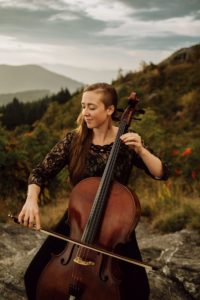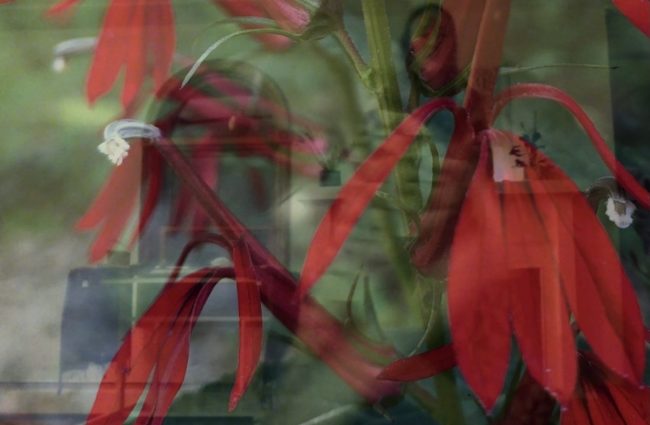Arts and artists throughout Appalachia have a strong connection to the land. That connection is expressed in diverse ways, sometimes overt and intentional, and other times more subtle, like an undercurrent. The music of Appalachia, especially Southern Appalachia, is no different. Usually, when one thinks of “Appalachian music” the mind turns to bluegrass and blues, banjos and fiddles, ballads and reels. Like our mountains and our people, our music is, in reality, much more diverse.

A creative energy from deep within these mountains is channeled through the people here, whether native-born or transplant. Some people spend their entire lives here, while others leave and make their lives elsewhere. Many are drawn here from outside Appalachia. Some only stop here for a time; others put down roots and come to call Appalachia home. Unsurprisingly, creative communities are scattered throughout the region. One of the most well-known of these areas is in Western North Carolina, centered in Asheville, the place musician Emmalee Hunnicutt calls home.
Emmalee Hunnicutt is a singer/songwriter from Iowa who came to Western North Carolina after earning a degree in cello performance, and, subsequently a license in massage therapy using the Alexander Technique.1)“The Alexander Technique is a method that works to change (movement) habits in our everyday activities. It is a simple and practical method for improving ease and freedom of movement, balance, support and coordination. The technique teaches the use of the appropriate amount of effort for a particular activity, giving you more energy for all your activities. It is not a series of treatments or exercises, but rather a reeducation of the mind and body. The Alexander Technique is a method which helps a person discover a new balance in the body by releasing unnecessary tension. It can be applied to sitting, lying down, standing, walking, lifting, and other daily activities…” from The Complete Guide to the Alexander Technique. Training in this method “gave her the tools. . . to work with performance anxiety and to enhance her musical creativity.”2)From Emmalee Hunnicutt’s bio found at https://emmaleehunnicutt.com/home#bio.
Emmalee uniquely channels the energy of these Appalachian Mountains in her new solo album Picnic, Moonside, released by Dear Life Records, and available as a digital download or on cassette at Bandcamp.com. As a classically trained musician who started playing the cello very young, she has a mastery over the instrument and its surprising range. Sometimes the cello sounds as if other instruments are added to tracks, but that is not the case. The music is all Emmalee and her cello, recorded in the natural environs of Western North Carolina, and often accompanied by the birds, moths, and other critters of the Appalachian wilds.
Picnic, Moonside is a collection of songs that journey [sic] into the world beneath the dirt and the moonlit times after the sun sets. From joyful descriptions of eating beets, to moonside picnics with Hawk Moths pollinating night blooming Datura flowers, this album is an exploration of one artist’s love for the earth and its mysteries.3)Quote from the album release information.
“On the Joy of Eating Beets” is a wonderful start to the album, expressing, well, the simple joy of eating beets. The piece begins with harmonics played on the cello that produce a sound more like a violin or viola to me. Emmalee voices the lyrics in a chant-like ballad. The cello then shifts to a delightful contrast with a plucked, walking-bass type riff and vocals. The lyrics themselves create a clever counterpoint of sorts, where the person and the beet become one: “My heart, my heart in the ground, in the ground tastes sweet,” and “Sweet root, sweet root in the ground, in the ground it beats, beating it beats, it seems.” When we consume the edible root, we become merged with and indistinguishable from the beet, for a time at least. The cello then shifts into a warm, sonorous canon as it flows to a close. (One cannot sing while one is eating beets, after all.)
The title track “Picnic, Moonside” is an instrumental that demonstrates the fullest range of the cello. Ms. Hunnicutt displays her virtuosity, creating a soundscape of plucked strings, warm full tones, and harmonics. The voicing moves with an ebb and flow through the piece. The overall arc of “Picnic, Moonside” begins slowly and sedately, rises to a frenetic peak, and settles into a satisfied finish. Many peaks and valleys of tone and rhythm are within this frame. This journey is not the steady-paced climb of a paved footpath. It is a vision of mountain hikes in the Appalachians, cresting a ridge and descending the other side, only to find the next rise steeper and higher until you finally reach the vista, where it feels like you can see the ends of the earth with the light of a full moon. Here is where we spread our blanket and enjoy our moonlit picnic.
If “Picnic, Moonside” is the climb to reach a mountaintop clearing, then “Vespertine” is the picnic itself. We once again join the world around us, experiencing nature from a mingled perspective. We share the symbiotic relationship between flora and fauna that is a microcosm of the interconnectedness of life.
The layering of tones is pervasive throughout Picnic, Moonside, expressing the varying ways we experience the world around us, all simultaneously. Emmalee uses harmonics and micro-tones to convey an unseen, otherworldly aspect, layered atop the physical world heard in the rich resonance of the cello. This album is full of contrasts and complements from the deep contemplative tones of “Mushrooms in the Morning” to the light and cheerful expression of love in “Sun, Salt, Sea.” The album closes with a journey from Appalachia to Emmalee’s Midwest upbringing in “Unbroken eye.” This song is really the most traditional tune included in the set and rounds out the arrangement nicely.
On Picnic, Moonside Emmalee melds an amazing array of styles to create a musical tapestry. She incorporates elements of classical music, folk ballads, ambient music, and even non-Western microtonalities, to weave her own avant-garde style of modern folk. She shares her moonlit picnic with us through the mastery of her instrument, the melody of her voice, and her clever technique with lyrics and rhythms. I thoroughly enjoyed Picnic, Moonside and would recommend it to anyone looking for something wonderfully different, yet familiar.
Emmalee Hunnicutt currently lives in Asheville and works as a Massage Therapist, Alexander Technique Teacher, and Cellist playing for wedding gigs . . . with her bands: Vinesines, Library of Babel, and Mountain Bitters. Additional albums are available here. Follow her on Facebook. You can also find her work on Dear Life Records.
**Featured image from Emmalee Hunnicutt’s Picnic, Moonside
References
| ↑1 | “The Alexander Technique is a method that works to change (movement) habits in our everyday activities. It is a simple and practical method for improving ease and freedom of movement, balance, support and coordination. The technique teaches the use of the appropriate amount of effort for a particular activity, giving you more energy for all your activities. It is not a series of treatments or exercises, but rather a reeducation of the mind and body. The Alexander Technique is a method which helps a person discover a new balance in the body by releasing unnecessary tension. It can be applied to sitting, lying down, standing, walking, lifting, and other daily activities…” from The Complete Guide to the Alexander Technique. |
|---|---|
| ↑2 | From Emmalee Hunnicutt’s bio found at https://emmaleehunnicutt.com/home#bio. |
| ↑3 | Quote from the album release information. |
